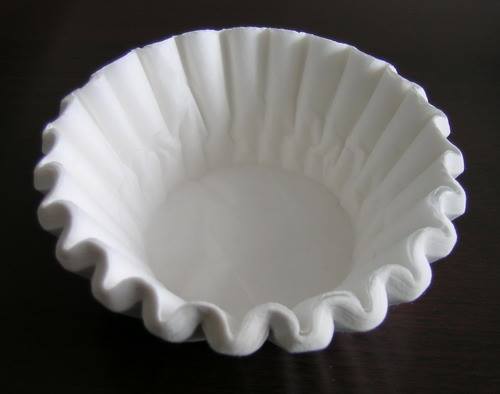
Coffee, a beverage cherished by millions around the world, owes much of its popularity and convenience to a simple yet ingenious invention: the coffee filter. In this article, we delve into the history, evolution, and impact of the coffee filter, a pivotal innovation in the world of coffee brewing.
The Birth of the Coffee Filter: Melitta Bentz’s Revolution
The story of the coffee filter begins in early 20th-century Germany with a housewife named Melitta Bentz. Frustrated with the prevalent methods of coffee brewing, which often left grounds in the cup and resulted in a bitter taste, Bentz sought a better way. Her breakthrough came in 1908 when she experimented with blotting paper from her son’s school notebook, using it in a brass pot punctured with holes. This simple contraption effectively filtered out the coffee grounds, leading to a clearer, more palatable brew. Recognizing the potential of her invention, Bentz patented the coffee filter and, along with her husband, founded the Melitta company, which remains a major player in the coffee industry.
The Evolution of Coffee Filters
The coffee filter has undergone several transformations since Bentz’s initial invention:
1. Paper Filters: Bentz’s original design evolved into the disposable paper filters widely used today. These filters are convenient, effective in removing oils and sediments, and come in various shapes and sizes to fit different brewing methods.
2. Cloth Filters: Cloth filters, made from natural fibers like cotton or linen, were used before the advent of paper filters and are still in use. They are washable and reusable, offering a sustainable alternative to paper filters.
3. Metal Filters: Metal filters, typically made from stainless steel or gold, have gained popularity for their durability and environmental friendliness. They allow more oils and fine coffee grounds through, which can enhance flavor but may leave some sediment.
4. Cone vs. Basket Shapes: Filters come in mainly two shapes: cone and basket. Cone filters, associated with pour-over brewing, encourage water to travel through the coffee grounds evenly. Basket filters are used in many automatic drip machines and provide a different extraction process.
5. Eco-Friendly Innovations: In recent years, the industry has seen a shift towards more sustainable options, such as biodegradable and compostable filters, reflecting a growing environmental consciousness among consumers and manufacturers.
Impact on Coffee Brewing and Culture
The invention of the coffee filter significantly altered the coffee brewing process and, subsequently, coffee culture. It enabled a cleaner, more consistent brew, appealing to a broader audience. The ease and convenience of using a coffee filter facilitated the widespread adoption of home coffee brewing, making it an integral part of daily life for many.
1. Home Brewing Revolution: Before the coffee filter, brewing coffee was a more laborious and inconsistent process. The filter simplified this, leading to a surge in home coffee consumption and the development of various home brewing methods.
2. Influence on Coffee Machines: The development of coffee filters influenced the design of coffee machines, with many modern machines incorporating filters into their design. This integration has led to more efficient and user-friendly coffee-making appliances.
3. Cultural Significance: Coffee filters have played a subtle yet significant role in shaping coffee culture. From the ritual of preparing morning coffee to the art of perfecting brewing techniques, the coffee filter is an understated but essential element of this cultural phenomenon.
4. Economic Impact: The coffee filter industry has contributed significantly to the economy, with numerous companies and jobs dedicated to producing and distributing filters worldwide.
The Future of Coffee Filters
As we look to the future, the coffee filter continues to evolve. Innovations focus on sustainability, improved taste quality, and compatibility with an array of brewing techniques. We’re likely to see continued development in eco-friendly materials and designs that enhance the brewing process, meeting the demands of an increasingly sophisticated and environmentally conscious consumer base.
1. Technological Advances: Future coffee filters may incorporate new materials or designs that improve filtration efficiency or enhance the flavor profile of coffee.
2. Environmental Considerations: The push towards sustainability will likely result in more biodegradable, compostable, or reusable filter options.
3. Consumer Preferences: As consumers become more knowledgeable about coffee, demand for filters that cater to specific brewing preferences and methods will increase.
The coffee filter, a seemingly mundane object, has played a pivotal role in transforming how we brew and enjoy coffee. From Melitta Bentz’s initial invention to the diverse array of filters available today, this invention has not only made coffee brewing more accessible but has also contributed to the rich culture surrounding this beloved beverage. As we continue to innovate and refine the coffee-making process, the humble coffee filter stands as a testament to the power of simple, yet impactful, inventions in our daily lives.
Related articles:
German Women – Scientists and Inventors
Rudolf Diesel, His Invention and Mysterious Death
Karl Drais, the Bicycle and Typewriter Inventor
Carl von Linde Who Gave the World the Refrigerator
